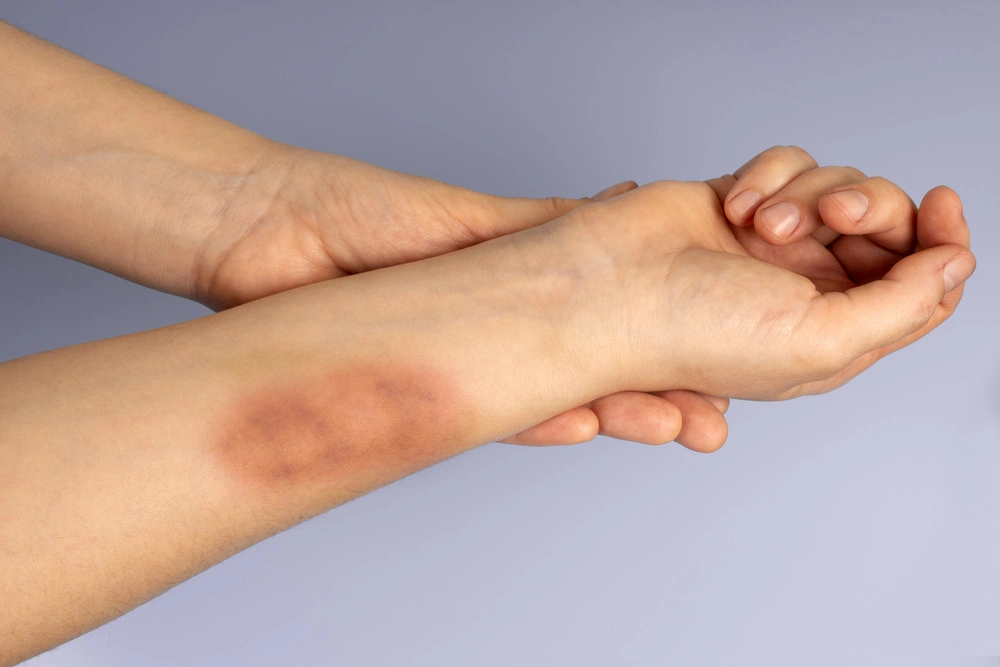Domestic Violence
Criminal Defense
Domestic Violence In Southern California
Serving Banning, Blythe, San Bernardino, Palm Springs, San Diego, El Centro, Indio, Riverside, Rancho Cucamonga and surrounding areas.
Being accused of domestic violence is traumatic. Not only does it significantly damage your relationship, but it also creates the possibility of severe legal consequences. If convicted, you may have to serve a jail or prison sentence, pay expensive fines, have a restraining order filed against you, and/or lose custody rights. Furthermore, you will have a criminal record that will interfere with your career and social life.
The best way to avoid these negative outcomes is to invest in a top-tier criminal defense attorney who can tell your side of the story to persuade the court that you are not guilty. Shaffer Cormell is a top-rated criminal defense attorney in Riverside County who has over 30 years of experience defending individuals charged with domestic violence. If you have been charged with domestic violence call Shaffer today for a free consultation and take the first step toward beating your case!
What is the Legal Definition of Domestic Violence?
-
1A current or former spouse,
-
2A person with whom the accused has had a child
-
3A live-in romantic partner (i.e. a “cohabitant”),
-
4A current or former registered domestic partner,
-
5A current or former fiancé(e),
-
6A person the accused has seriously dated
Other potential victims of domestic violence can be:
-
1The accused’s child
-
2The accused’s immediate relatives such as
-
3Siblings
-
4Half-siblings
-
5Step-siblings
-
6Grandparents
-
7Grandchildren
-
8Aunts and uncles
-
9Nephews and nieces
What Are the Legal Penalties for Domestic Violence in California?
Penal Code 273.5 defines one form of domestic violence as inflicting “corporal injury” on an intimate partner. Causing even a minor physical injury to an intimate partner is a felony with penalties ranging from one year in county jail to up to four years in California state prison.
Penal Code 243(e)(1) is California’s domestic battery law that makes it a misdemeanor to inflict force or violence on an intimate partner. Unlike Penal Code 273.5, domestic battery does not require the victim to be injured. Merely inflicting any form of violence on an intimate partner, even if they are unharmed by it, is grounds for a conviction under this law. For example, if a woman slaps her husband she has committed a domestic battery even if the husband is not injured in any way. Punishment for a domestic battery can include a fine of up to $2,000 and/or up to one year in county jail.
Penal Code 273d is California’s child abuse law that makes it a crime to inflict corporal injury on a child. PC 273d is a “wobbler” offense meaning it can be charged as either a misdemeanor or a felony depending on the unique circumstances of each case. If the child suffers a serious injury as a result of the abuse the defendant will most likely be charged with a felony. If the defendant has a criminal record it also increases the likelihood of a felony child abuse charge. “Reasonable spankings” are not prohibited under this law but any punishment that is “cruel” or causes injury is illegal in California. A first offense for child abuse is punishable by up to one year in county jail or up to three years in state prison.
Penal Code 273a is California’s child endangerment law that makes it a misdemeanor to willfully allow a child in one’s car to either suffer harm or have their safety/health endangered. PC 273a is a “wobbler” crime that can be charged as a felony if the child is at risk of great bodily injury. Unlike PC 273d, PC 273a does not require the defendant to actually harm the child themselves, merely exposing the child to harm is enough to trigger this law. For example, a mother who allows her boyfriend to beat her child has violated PC 273a. Likewise, drunk driving with a child in the car is also a violation of PC 273a that would expose the driver to a felony conviction because drunk driving creates the risk of great bodily injury to the child. Misdemeanor child endangerment is punishable by up to six months in county jail while felony child endangerment can be punished by two, four, or six years in state prison.
Penal Code 270 is California’s child neglect law that makes it a misdemeanor to willfully fail to provide necessities (e.g. food, shelter, medical care, etc..) to their minor child. Punishment for child neglect can include a fine of up to $2,000 and/or up to one year in county jail.
Penal Code 368 is California’s elder abuse law that makes it illegal to physically or emotionally abuse, neglect, endanger or defraud a victim 65 years or older. PC 368 is a “wobbler” crime that can be charged as either a misdemeanor or a felony depending on the circumstances. Misdemeanor elder abuse is punishable by up to one year in county jail while felony elder abuse can be punished by up to four years in state prison.

In addition to the above penalties,
most California counties impose a mandatory minimum jail sentence of 30 days for any domestic violence conviction. Even if it is the defendant’s first offense and the charge is only a misdemeanor jail time will still be mandatory.
Someone convicted of a domestic violence crime may also be required to pay the victim a “restitution” fee as compensation for the harm they suffered. Restitution fees can include medical bills, mental health counseling, lost wages, and/or property damages. The defendant will also have to pay an additional $500 to fund domestic violence programs in California.
Judges will also require convicted abusers to participate in a year-long treatment and counseling program.
A domestic violence conviction will go on the defendant’s permanent criminal record that will appear on a background check. A criminal record can make it difficult to gain employment, state licensing, housing, or other benefits.
A domestic violence conviction will also usually result in the defendant losing custody of their minor children.
A domestic violence conviction will also almost always result in the loss of the right to own or possess a firearm. Loss of gun rights resulting from a domestic violence conviction is permanent; there is no way to recover the right to own or possess a firearm after a domestic violence conviction.
California law also allows a victim of domestic violence to obtain an emergency restraining order, also known as a protective order, against the defendant. If the victim can prove the defendant abused or threatened them or their child and that the defendant is an intimate partner or close relative the restraining order will be granted. The defendant does not need to prove they suffered any injury, proving that any abuse occurred is sufficient for a restraining order. A restraining order will prevent the defendant from contacting or being in close proximity to the victim. Violating a restraining order is a crime.
A domestic violence conviction also has negative immigration consequences.
Many domestic violence crimes qualify as “aggravated felonies” or “crimes of moral turpitude” under U.S. immigration law and can result in deportation or inadmissibility into the U.S.A. including ineligibility to apply for a green card. However, a skilled attorney may be able to negotiate a plea bargain that will protect you from the negative consequences of a domestic violence conviction.


Legal Defenses for Domestic Violence
If you have been charged with domestic battery there is hope because numerous legal defenses exist that can prevent you from being convicted. For example, your attorney can argue that the other person’s injury was the result of an accident. A domestic violence conviction requires “willful” conduct and if the injury was merely accidental there can be no conviction. Your attorney can also argue that you did not cause the injury and are being falsely accused. If you acted in self-defense because you reasonably believed you were under threat of immediate physical harm you cannot be convicted of domestic violence.
In addition to presenting a legal defense,
your attorney can also negotiate for a plea bargain to lesser charges. Domestic violence is a serious crime with severe penalties so it is in your best interest to plead to a lesser charge if you are unable to successfully defend against a domestic violence charge. The most common lesser offenses a domestic violence defendant may plead to are Penal Code 415 disturbing the peace or Penal Code 602 criminal trespass. Pleading to one of these crimes will prevent automatic loss of custody rights over children, the retention of the right to own a firearm, and no deportation for non-citizens.
Another legal strategy for dealing with a domestic violence charge is to try to get the defendant into a pre-trial diversion program or a deferred entry of judgment. If the defendant successfully completes a batterers’ program prior to trial the case will generally be dismissed. A defendant may be eligible for a pre-trial diversion program depending on the specific charges, their criminal history, and the jurisdiction.








